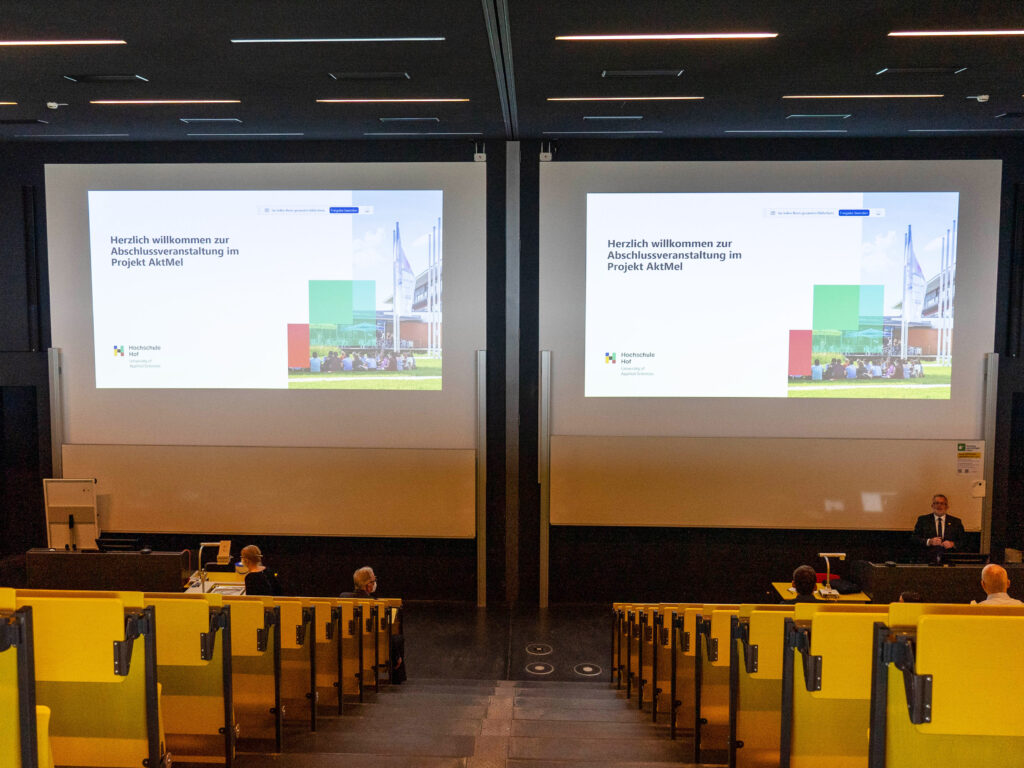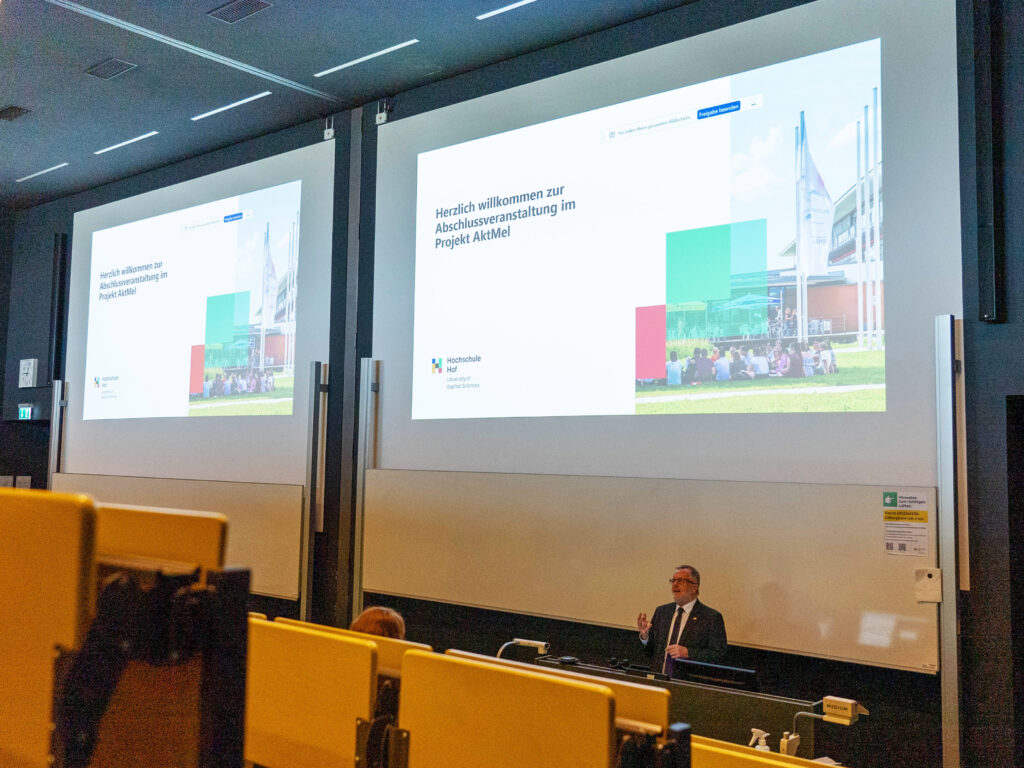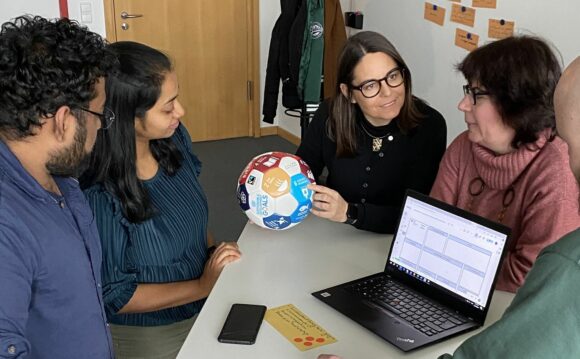The Institute for Information Systems at Hof University of Applied Sciences (iisys) has completed the “AktMel” research project. The project, which was funded by the German Federal Ministry of Digital Affairs and Transport (BMDV), shows how local public transport can be improved by incorporating up-to-date resident registration data and how the service can be geared more closely to actual needs. Access to the anonymized or pseudonymized data complies with the applicable data protection and registration laws.

It’s the old song: Especially in rural areas, people are still heavily dependent on individual transport, i.e. on the car. Local public transport in more sparsely populated areas is usually economically in deficit and – as a consequence or mutual interaction – poorly developed. In order to counteract this, the Hof University of Applied Sciences, together with the district of Wunsiedel im Fichtelgebirge and the Institute for Municipal Data Processing in Bavaria (AKDB), started the research project “Online Access to Current Data of Residents’ Registration Offices (AktMel)” two years ago. Together with the other cooperation member RIWA, the project results have now been presented to the public.
The challenge of legal certainty
The challenge of the research project: There is currently no efficient and legally compliant way to automatically access registration data for infrastructure planning. This is particularly due to the fact that the current Bavarian registration law does not permit the retrieval of registration data for a large number of persons. An important challenge here is to avoid drawing conclusions about individual persons.

Image Hof University of Applied Sciences;
Anonymized/pseudonymized and geocoded data
“AktMel” now creates a solution that meets all legal requirements for anonymization or pseudonymization of data: The addresses of the registration data are mapped to geographic coordinates and the number of persons for the cells of a grid is derived from them. Using the formal language COMPASS (Compliance Assertion Language) developed in the project, conditions are formulated for the result, compliance with which prevents the inference of information on individual persons. In particular, this also ensures that the results comply with legal requirements. This procedure not only ensures transparent and traceable compliance with the conditions, but also makes it possible to flexibly integrate changing legal situations
The system ensures that data protection requirements are met and that inquirers also receive results if parts of the reporting data cannot be anonymized.”
Stephanie Kitzing, Multimedia Information Systems Research Group
Using dummy data for development
During the research project, so-called dummy data were initially used, which were generated artificially. Exclusively these data were used for the development and optimization of the developed system in order to ensure the protection of personal data also during the project. Now that the system has been completed, the actual reporting data can be used in a legally secure manner to analyze local public transportation (ÖPNV) in the entire Wunsiedel district. This district serves as the study area with currently 17 bus routes to transport primarily school children. Due to its successful implementation, the use of reporting data for planning purposes will be available to all regional authorities in Bavaria possibly before the end of this year.
Evaluating existing services and improving planning
With the online access to data from the residents’ registration offices made possible in this way, existing bus routes can now be evaluated, among other things, explains Wunsiedel’s District Administrator Peter Berek
Where is there further need? How can better accessibility be achieved for the population? Are more stops necessary and possible? Do special offers for different age groups perhaps also make sense? For the district of Wunsiedel, this is a legally secure and efficient step toward planning security. It makes mobility more sustainable.”
Peter Berek, District Administrator of the Wunsiedel im Fichtelgebirge district
However, the use of data is by no means limited to the area of mobility and traffic routes – it can also be used to optimize social planning in the future.







